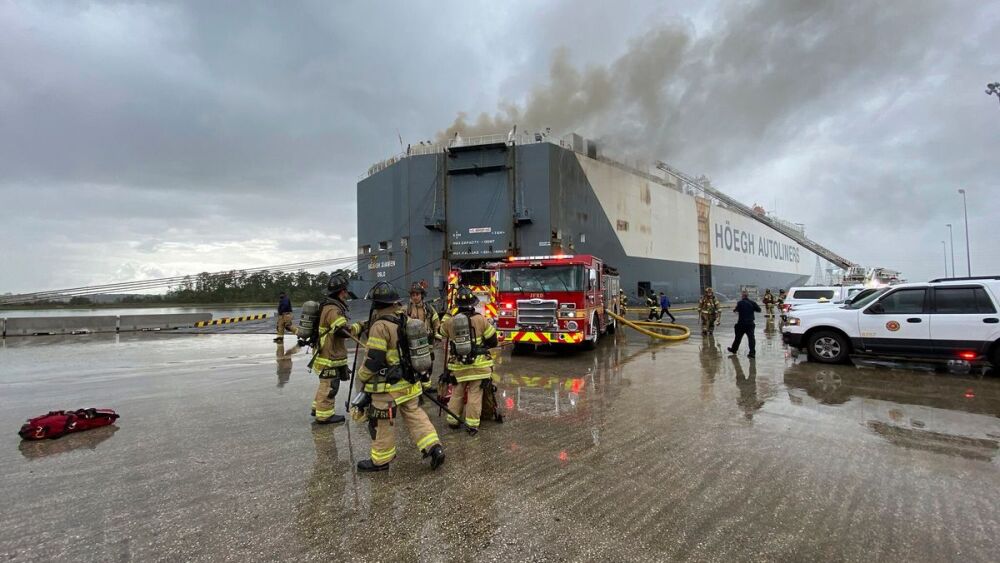By Lawrence Mower, Ana Ceballos, Jeffrey S. Solochek
Miami Herald
TALLAHASSEE, Fla. — Florida is paying a private contractor $3.6 million to help issue $1,000 bonus checks bearing the governor’s logo to teachers, principals and first responders.
Two state agencies signed contracts with Fidelity Information Services last month to collect information on police officers, firefighters, paramedics, teachers and principals to determine which ones are eligible for the $1,000 bonuses and send them checks.
The bipartisan decision by the Florida Legislature, at Gov. Ron DeSantis’ urging, to assign more than $400 million in pandemic relief dollars to one-time bonuses for teachers and first responders has turned surprisingly contentious, with accusations of political gamesmanship and negotiations with unions about who would be eligible for the checks.
Instead of sending the money directly to local governments to disburse to their employees, as the state has done with previous teacher bonuses, the state is paying Fidelity to do the work. That has prompted accusations from some lawmakers and teachers union officials that DeSantis is using the bonuses to score political points.
“They could have just sent the money to school districts at no cost to taxpayers,” Andrew Spar, president of the Florida Education Association, said Thursday. “It sounds like the governor’s wasting money.”
State Education Commissioner Richard Corcoran last month denied those accusations, saying the money would recognize the hard work educators did to keep schools open during the pandemic.
“We’re trying to do that as a direct thank you ... so they know we appreciate the great work they did,” Corcoran said.
According to Fidelity’s $1.6 million contract with the Department of Economic Opportunity, all of the checks must bear an “office of the governor” design approved by the department.
If it has all the needed employee information, Fidelity will print the checks and mail them to each recipient, and it must also create a call center for recipients who have questions about the bonuses.
The department said the checks are expected to go out by mid-August, as long as all employers submit their information to the state. So far, more than 70% of the more than 800 agencies that employ first responders have uploaded their employee information, a department spokesperson said.
The Department of Education, which has signed a separate contract with Fidelity for nearly $2 million, has said the teacher bonuses will also go out in August.
While eligible employees rejoiced at news about an upcoming bonus, some questioned why the checks were being mailed to their homes rather than deposited directly into the bank accounts on file with their employer — which in some cases is the state.
How to cut the checks hasn’t been the only source of contention. The U.S. Department of Education has said Florida’s bonuses could conflict with federal requirements that the money help address student “learning loss” brought on by the pandemic. (State officials disagree.)
Not every educator or first responder will get these bonuses when they do go out.
The bonuses for about 180,000 teachers and about 3,600 principals are not going to other school employees, such as counselors, assistant principals and other staff. That has prompted some school districts, including Pinellas and Pasco counties, to spend money extending the bonuses to other employees who worked through the pandemic.
For the estimated 250,000 first responders who could receive checks, the state has had to negotiate with unions over who would be eligible.
Correctional officers and other first responders who were subject to “any disciplinary action” since March 1, 2020, were initially ineligible, under language Florida lawmakers approved when they signed off on $1,000 bonuses for first responders in the state budget.
Union negotiators, state prison officials and the governor’s office, however, reached an agreement that loosens the eligibility criteria to grant bonuses to nearly 1,000 correctional officers who committed “low level” offenses.
Michelle Glady, a spokeswoman for the Florida Department of Corrections, said the deal to provide bonuses to correctional officers with “low level” disciplinary charges is meant to recognize “their commitment, selfless service and compassion during the pandemic.”
It’s unclear if other unions representing first responders have made similar deals. The Fidelity contract states that written reprimands, suspensions, dismissals and demotions disqualify someone from receiving the bonus.
The state has defined “first responders” as: Sworn law enforcement officers; emergency medical technicians; firefighters and paramedics; institutional security officers, chiefs, specialists or supervisors with the Department of Children and Families or Agency for Persons with Disabilities; Department of Corrections’ certified correctional officers; certified correctional probation officers, and inspector general inspectors.
(c) 2021 Miami Herald


